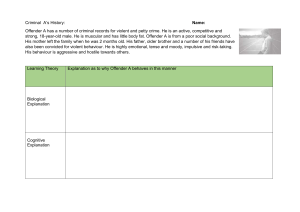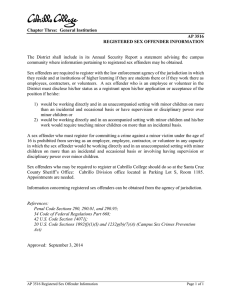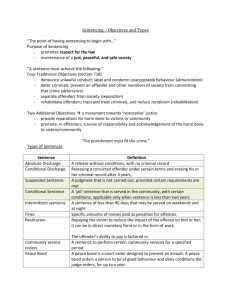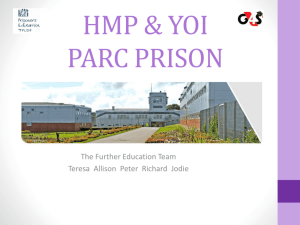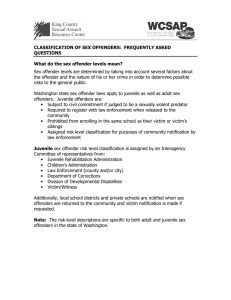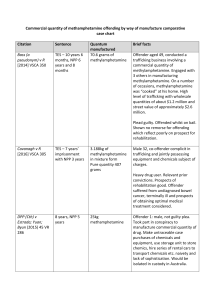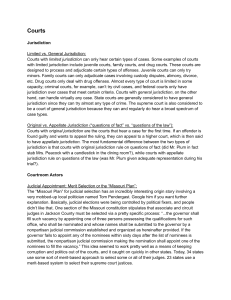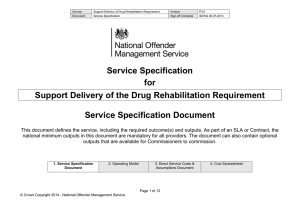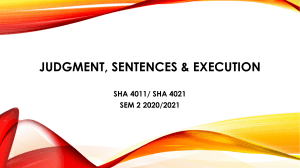Eight Evidence-Based Practices Principles
advertisement
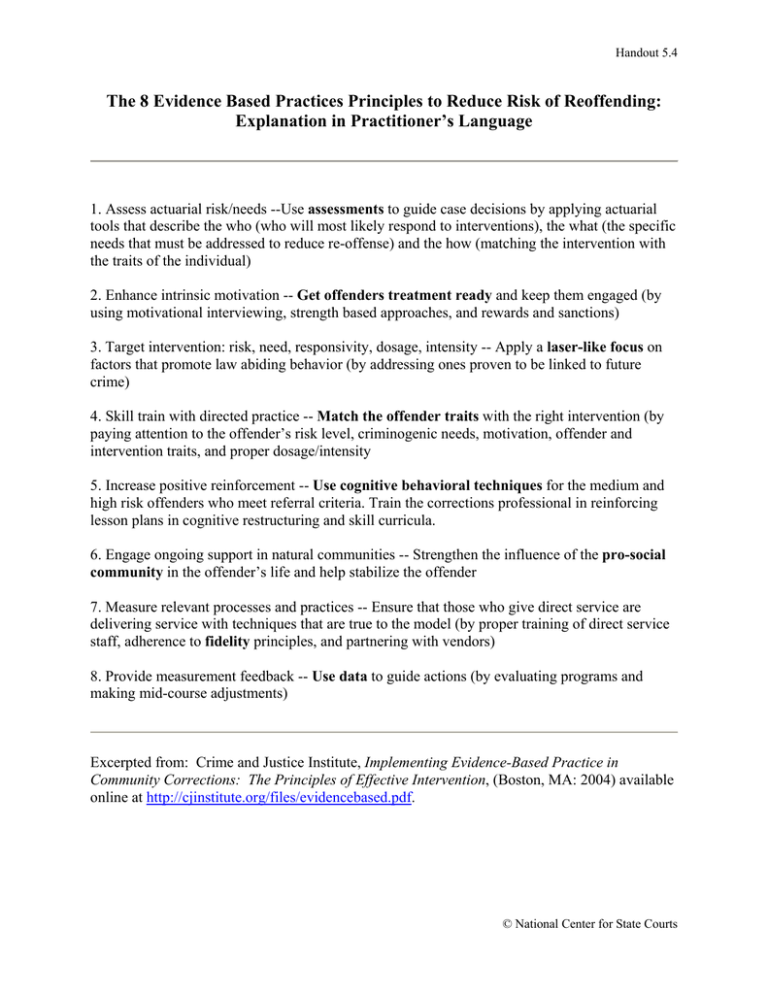
Handout 5.4 The 8 Evidence Based Practices Principles to Reduce Risk of Reoffending: Explanation in Practitioner’s Language 1. Assess actuarial risk/needs --Use assessments to guide case decisions by applying actuarial tools that describe the who (who will most likely respond to interventions), the what (the specific needs that must be addressed to reduce re-offense) and the how (matching the intervention with the traits of the individual) 2. Enhance intrinsic motivation -- Get offenders treatment ready and keep them engaged (by using motivational interviewing, strength based approaches, and rewards and sanctions) 3. Target intervention: risk, need, responsivity, dosage, intensity -- Apply a laser-like focus on factors that promote law abiding behavior (by addressing ones proven to be linked to future crime) 4. Skill train with directed practice -- Match the offender traits with the right intervention (by paying attention to the offender’s risk level, criminogenic needs, motivation, offender and intervention traits, and proper dosage/intensity 5. Increase positive reinforcement -- Use cognitive behavioral techniques for the medium and high risk offenders who meet referral criteria. Train the corrections professional in reinforcing lesson plans in cognitive restructuring and skill curricula. 6. Engage ongoing support in natural communities -- Strengthen the influence of the pro-social community in the offender’s life and help stabilize the offender 7. Measure relevant processes and practices -- Ensure that those who give direct service are delivering service with techniques that are true to the model (by proper training of direct service staff, adherence to fidelity principles, and partnering with vendors) 8. Provide measurement feedback -- Use data to guide actions (by evaluating programs and making mid-course adjustments) Excerpted from: Crime and Justice Institute, Implementing Evidence-Based Practice in Community Corrections: The Principles of Effective Intervention, (Boston, MA: 2004) available online at http://cjinstitute.org/files/evidencebased.pdf. © National Center for State Courts
